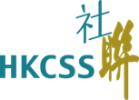Driving Good Governance with IT Reengineering
Strategic planning is crucial before implementing an IT Governance project, especially for an NGO, as it ensures that the organization’s resources are aligned with its mission and goals. Given the extensive reengineering involved, a well-thought-out plan helps identify potential risks, allocate resources efficiently, and set clear objectives. This preparation not only saves time and reduces costs but also enhances stakeholder buy-in by involving them in the planning process.
Building on the importance of strategic planning, the next step involves developing a detailed roadmap for implementing IT Governance tailored to the unique needs of different NGOs. A clear roadmap outlines the phases of implementation, from initial assessment and stakeholder engagement to the deployment of governance frameworks and continuous improvement processes.
Mr. Frank Chow, Vice-Chairperson, Professional Information Security Association (PISA), provided the following tools and resources for designing a comprehensive roadmap, empowering NGOs to craft the most appropriate IT governance strategy tailored to their specific requirements.
Resources
Four event materials have been published on the Project’s website since April 2024 and are as follows:
- Must Know Legal Issues for NGO Management - Anonymous Donation, Mr. Alan Linning, Partner of Mayer Brown, was invited to explore the complex legal considerations associated with anonymous donations, empowering the board members and senior management of NGOs to make informed decisions, discover risk-mitigation strategies and safeguard their organization.
- Must Know Legal Issues for NGO Management - Intellectual Property, to equip NGOs with knowledge essential for decision-making, as well as governing strategies to deal with legal challenges related to intellectual property, the Council invited Ms. Gabriela Kennedy, Partner of Mayer Brown, to discuss critical issues and the impacts of intellectual property on the sector.
- Empowering NGOs through Effective Information Technology Governance: From Initiation to Implementation (Mr. Frank Chow), to guide NGOs in designing and implementing IT governance, Mr. Frank Chow, Vice-Chairperson, Professional Information Security Association (PISA), provided a theoretical framework which presented a structured approach to establish effective IT governance
- Empowering NGOs through Effective Information Technology Governance: From Initiation to Implementation (Ms. Josephine Lee), the Council and Information Technology Resource Centre (ITRC) collaborated to host a sharing session, featuring Ms. Josephine Lee, MH, Chief Executive Officer of St. James' Settlement, and Mr. Frank Chow to discuss how to explore applying the IT governance framework to real-life NGO implementations.
Upcoming Events
The Risks of NGO Staff Misconduct: When might an NGO or its directors be held legally responsible?
The legal doctrine of vicarious liability means that employers may be held liable for the misconduct of employees in the course of their employment. In recent years, NGOs have become increasingly concerned about risks related to staff misconduct, and how it may lead to legal liability for the NGO and/or its directors. The Council has collaborated with PILnet and DLA Piper to explain, using a series of case studies: (1) the potential liability of NGOs and their directors for staff misconduct; and (2) what best practices NGOs can adopt to limit such liability.
Must Know Legal Issues for NGO Management (Rerun)
The Council and Mayer Brown co-organized the event “Must Know Legal Issues for NGO Management” in April, which received great acclaim. Due to popular demand, we are pleased to announce a rerun of this discussion at the end of September. The event addresses two pivotal topics impacting NGOs: anonymous donations and intellectual property issues, in a clear and accessible manner. Participants will delve into the details of relevant legal areas, empower them to make informed decisions, mitigate associated risks, and safeguard their organization.
Crisis Management 2.0: Establishing a Flexible Response Framework
In light of the constantly evolving social landscape, the governing bodies of NGOs require a robust and established mechanism to effectively address sudden and unexpected situations as well as crises in a timely manner. Following the positive reception of our previous event, the Council invites Dr. Li Chan Wing, a media veteran, to revisit the "MNOPQR" crisis management checklist and explore the practical application of the 5Ws1H technique. Additionally, he will conduct a thorough analysis of noteworthy cases, providing valuable insights into the latest trends and strategies in crisis management.
Furthermore, Dr. Li will introduce two advanced crisis management approaches, namely CCIC (Command, Control, Intelligence, Communication) and MRRPP (Mitigate, Recover, Respond, Prevent, Prepare). These methods will assist NGOs in responding to a myriad of challenges with increased flexibility and a multi-dimensional perspective.
Issue 18 │ July 2024



